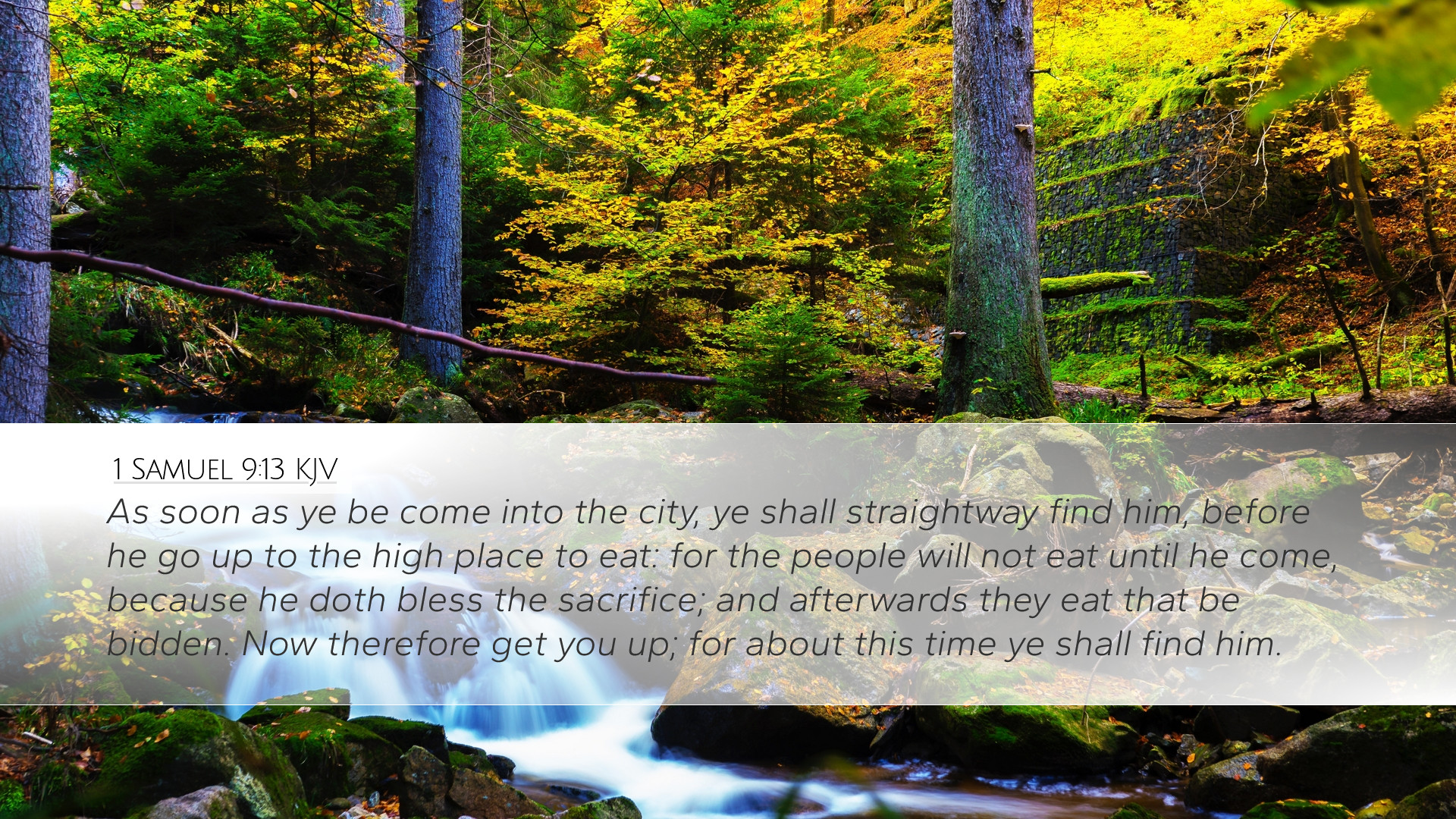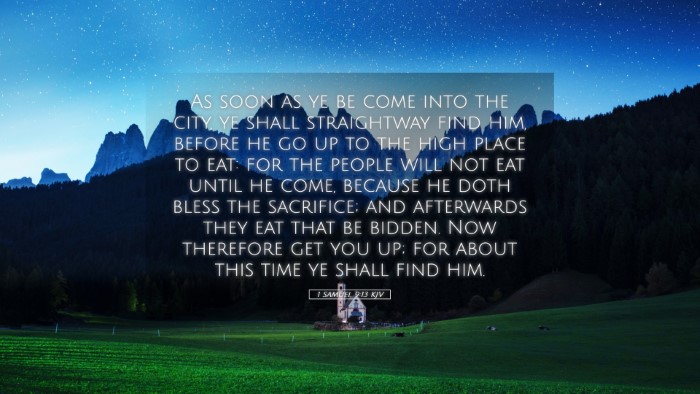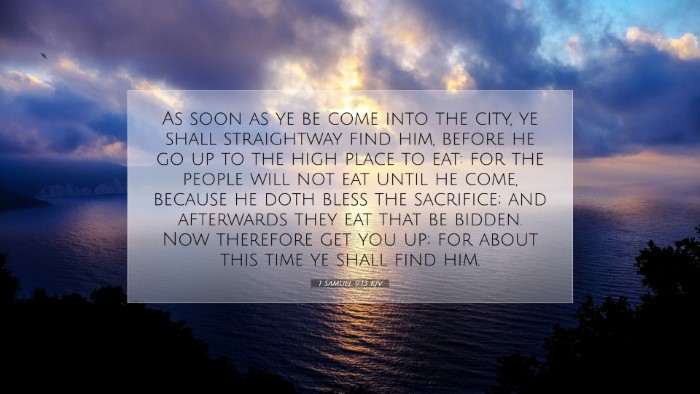1 Samuel 9:13 - Commentary Summary
Bible Verse: "As soon as you come into the city, you shall find him before he goes up to the high place to eat; for the people will not eat until he comes, because he must bless the sacrifice. Afterward those who are invited will eat. Now therefore, go up; for about this time you will find him."
Context and Background
The historical context of 1 Samuel 9:13 lies within the larger narrative of Israel's transition from a theocratic system of judges to a monarchy. This verse specifically points to a critical moment in Saul’s life, where he is being introduced to his future role as king. The dialogue between the servant and Saul suggests divine orchestration in the events leading to Saul’s anointing.
Insights from Commentaries
Matthew Henry's Commentary
Henry emphasizes the providential workings of God in the life of Saul. He notes that the waiting for the blessing of the sacrifice indicates the importance of divine approval before any public action.
- God’s Timing: The verse illustrates that timing is critical in the fulfillment of God’s plans. The instruction to Saul to go up reflects that the Lord’s purpose is meticulously arranged.
- Meeting Appointed: God's design is further manifested in Saul's approach to the city and his encounter with Samuel. There’s an assurance that God directs the affairs of men towards His intended outcomes.
Albert Barnes' Notes on the Bible
Barnes elaborates on the cultural practice of waiting for the leader to bless the offering, underscoring the significance of leadership and spiritual authority in Israel’s communal life.
- Significance of Blessing: The necessity for Saul to partake in the blessing reflects the weight of responsibility that he would soon bear as king. It stresses the sacred nature of his role.
- Synchronicity in Events: Barnes points out the concurrent events happening around Saul which establish the atmosphere of anticipation and divine appointment surrounding his ascent to kingship.
Adam Clarke's Commentary
Clarke provides a rich cultural interpretation, shedding light on the significance of the high place and the sacrificial meal, which were central to Israel’s worship practices.
- Cultural Implications: The high place symbolized a meeting point between God and His people, highlighting the importance of worship in the fabric of Israel’s identity.
- Social Structure: The communal feasting ritual after the blessing implies the strong tie between spiritual and social life in ancient Israel, indicating that spiritual leaders played pivotal roles in the cohesion of society.
Theological Reflections
This passage holds rich theological implications regarding God’s sovereignty and the human response to divine calling. It invites reflection on:
- The Nature of Leadership: Saul’s rise to leadership raises questions about divine selection versus human expectation, challenging the reader to discern God’s criteria for leadership.
- Divine Sovereignty: God's orchestration of events demonstrates His control over history, prompting theological reflection on how believers today perceive divine guidance in their lives.
- Prayer and Community: The communal aspect of waiting for Saul to bless the offering illustrates the role of prayer and shared belief within congregational life, crucial for any church community today.
Conclusion
1 Samuel 9:13 encapsulates a pivotal moment in biblical history where God’s plan for Israel unfolds through the appointment of a king. The insights drawn from the commentaries by Henry, Barnes, and Clarke reveal layers of meaning concerning divine providence, the cultural significance of sacrificial practices, and the responsibilities of leadership in the people of God. For pastors, students, theologians, and Bible scholars, this verse prompts deep engagement with themes of obedience, community, and the unfolding narrative of redemption throughout scripture.


